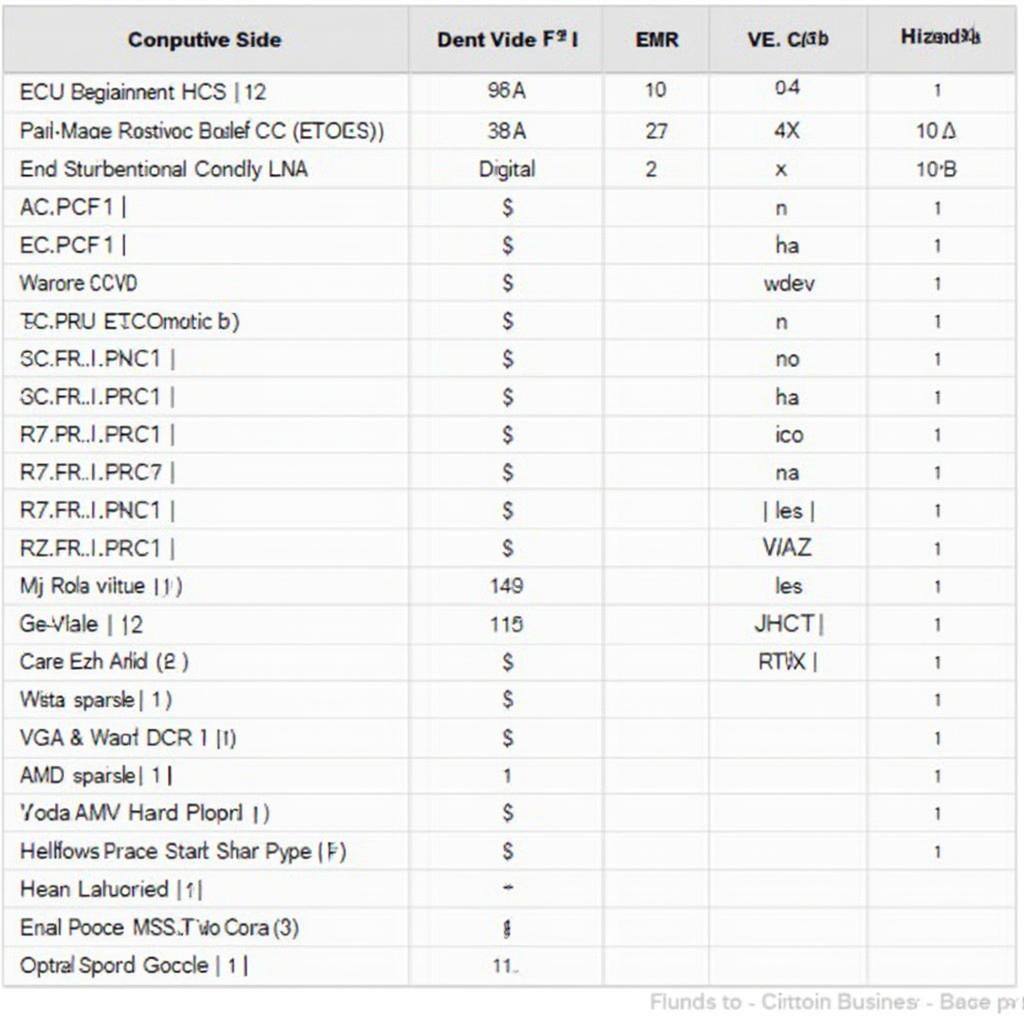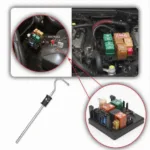Converting your older Honda from OBD0 to OBD2 can seem daunting, but with the right information, it’s a manageable project. This guide provides a comprehensive overview of the OBD0 to OBD2 Honda conversion process, covering everything from understanding the reasons for the conversion to the steps involved and the potential challenges you might face.
Why Convert to OBD2?
Several reasons might lead you to consider an OBD0 to OBD2 Honda conversion. Primarily, OBD2 offers significantly improved diagnostics. With OBD2, you gain access to more detailed trouble codes, making it easier to pinpoint issues and fix them quickly. Additionally, an OBD2 system allows you to use modern diagnostic tools, including the versatile OBD2 scanner. This gives you more control over understanding and maintaining your vehicle’s health. Another compelling reason is emissions compliance. Many areas now require OBD2 for emissions testing, making the conversion essential for legally operating your vehicle.
You can even enhance your car’s performance with an OBD2 conversion by enabling the use of advanced tuning software compatible with OBD2 systems. Think of it as unlocking your car’s potential – you’ll gain a greater understanding of its operation and can fine-tune it for optimal performance.
After this first paragraph, let’s consider the benefits of an OBD2 GPS tracker, a device that can enhance the security and management of your vehicle. Check out our review of the obd2 gps car tracker.
What You’ll Need for the Conversion
Before starting the OBD0 to OBD2 Honda conversion, gather the necessary components. These typically include an OBD2-compatible engine control unit (ECU), a wiring harness designed for OBD2, and an OBD2 diagnostic port. You might also require additional sensors depending on your specific Honda model and year. Ensure compatibility with your specific Honda model and year for all components.
Choosing the Right ECU
Choosing the right ECU is paramount. Different ECUs are designed for different engine configurations. Selecting the incorrect one can lead to performance issues or even damage your engine. Research your specific Honda model and year to determine the correct ECU part number.
 Honda OBD2 ECU Compatibility Chart
Honda OBD2 ECU Compatibility Chart
Performing the Conversion
The conversion process itself involves replacing the existing OBD0 ECU with the OBD2-compatible ECU, installing the new wiring harness, and mounting the OBD2 diagnostic port. This often requires careful splicing and soldering of wires, so having a wiring diagram specific to your Honda model is essential.
Wiring Harness Installation
The wiring harness installation is perhaps the most intricate part of the process. Ensure every connection is secure and correctly routed to avoid electrical problems. Double-check each connection against the wiring diagram.
If you’re interested in monitoring your vehicle’s data through your iOS device, check out our article on the veepeak obd2 ios app.
Testing the System
Once the conversion is complete, it’s crucial to thoroughly test the system. Connect an OBD2 scanner and check for any trouble codes. Take the car for a test drive to ensure everything is functioning correctly.
Common Challenges and Troubleshooting
During the conversion, you may encounter challenges such as wiring issues, sensor compatibility problems, or ECU programming difficulties. Having access to online forums and technical resources can be invaluable in overcoming these obstacles.
ECU Programming Issues
Some ECUs may require programming or chipping after installation. Research your specific ECU requirements beforehand and prepare accordingly.
Conclusion
Converting your Honda from OBD0 to OBD2 offers significant benefits in terms of diagnostics, tuning capabilities, and emissions compliance. While the process requires technical expertise and careful execution, the rewards are substantial. By following the steps outlined in this guide and addressing potential challenges proactively, you can successfully complete the OBD0 to OBD2 Honda conversion and enjoy the advantages of a modern diagnostic system.
FAQ
- Is an OBD0 to OBD2 conversion necessary for all older Hondas? It depends on your local regulations and your desire for enhanced diagnostic capabilities.
- Can I perform the conversion myself? Yes, with the right tools, knowledge, and resources.
- What is the approximate cost of the conversion? Costs vary based on the required components and labor.
- Where can I find reliable information about my specific Honda model? Online forums, service manuals, and Honda enthusiast communities are great resources.
- What are the benefits of using an OBD2 GPS tracker? They offer real-time location tracking, anti-theft features, and driving behavior monitoring.
For those interested in telematics solutions, you might want to explore our article on verizon telematics obd2. It provides insights into how telematics can benefit both individual drivers and fleet managers.
Need more information about using an OBD2 device for tracking? Check out our article about obd2 gps tracking device.
Need support? Contact us via WhatsApp: +1(641)206-8880, Email: [email protected]. We have a 24/7 customer support team.
